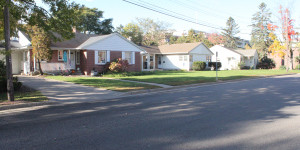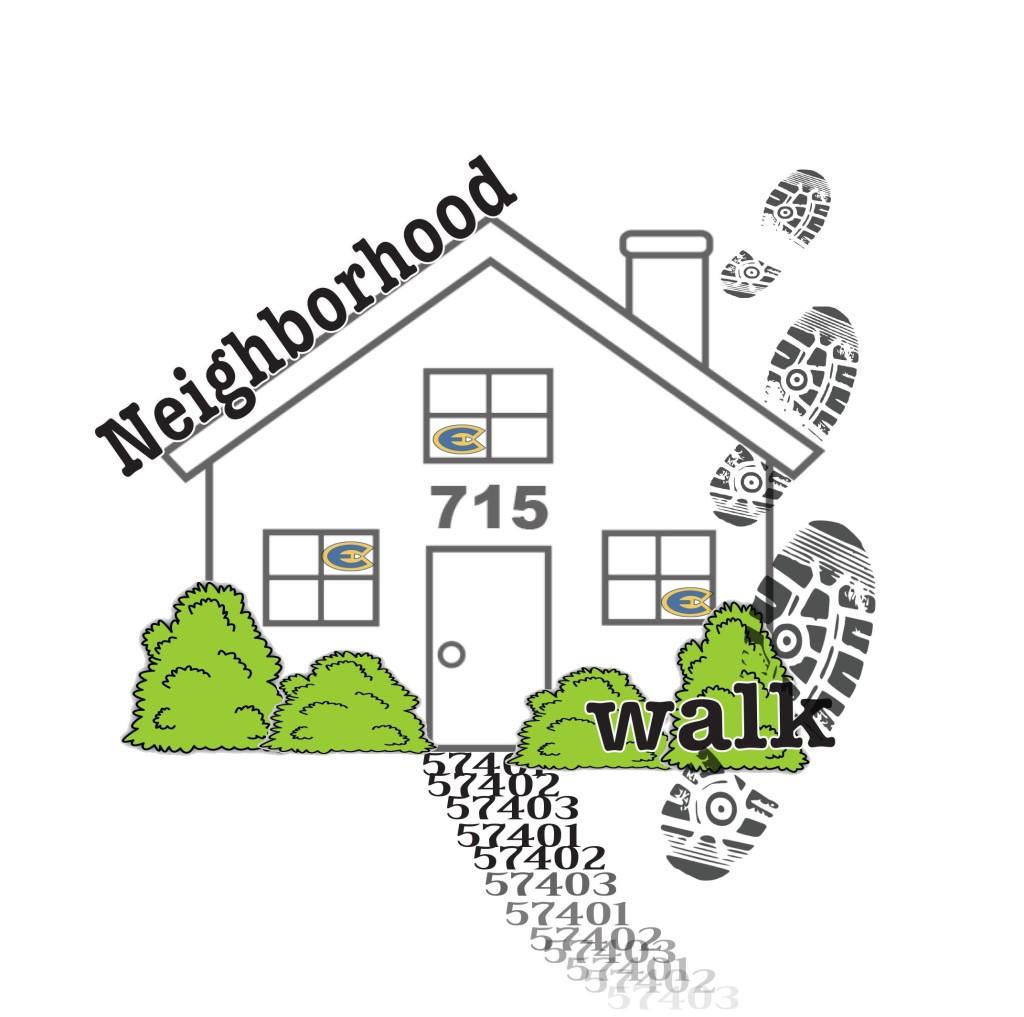Rezoning discussions
Tensions highlighted between 3rd Ward and UW-Eau Claire
November 17, 2014
Janeway Riley stood outside her Garfield Avenue home, one block off of the university, describing her fears of what the 3rd Ward neighborhood would become if more students were able to live in the area.
As she is speaking, students walk by her home, quietly and purposefully making their way to their parked cars at the end of the day.
Riley has lived in her home for over 50 years, and has seen the neighborhood change in the past, including development from UW-Eau Claire one block away.
Recent debate on the proposed rezoning of campus owned houses near UW-Eau Claire has brought back fears that more students in neighborhoods could cause messes, noise and other disturbances in an area known for its historic homes and quiet streets.
The university submitted a request to change 103 Roosevelt Ave., 117 Roosevelt Ave. and 123 Roosevelt Ave. from R-1, which allows only three unrelated people to live in the residence, to P-Public like the rest of the university buildings, which would allow more people to live there at once.

The houses are currently used to house visiting faculty, staff and their families.
But the current use is not what is creating debate within the neighborhood, Riley said.
The university’s master plan identifies the plots as a potential site for a new lower campus dorm to help replace the current Katharine Thomas Hall and Putnam Hall when those are torn down to make room for a new science hall.
Riley said residents fear the rezoning is the first change to enable the construction, and she would not support either measure.
She owns properties in Eau Claire, and in the 3rd Ward, but no longer rents to students because it is too problematic and causes too many liabilities.
“I bought the duplex behind my house,” Riley said. “To protect myself from students.”
She said that even within the 3rd Ward, she can generally tell the difference between student rentals and homes owned by individuals or families, just by the lack of upkeep.
Aaron Brewster, a co-chair of the 3rd Ward neighborhood association, said this is not an uncommon thought, because out of the city’s District 3, which includes campus, the 3rd Ward and the Randall Park Neighborhood, the 3rd Ward has a significantly lower percentage of rentals than the other areas.
He said that while the rentals make up near 80 percent of residences around Randall Park, it hovers near 40 percent in the 3rd Ward.
The actual percentage could be lower, because a number of the 3rd Ward rentals are occupied by young professionals, professors and other non-students.
He said the zoning issue is reminiscent of past interactions between the university and the 3rd Ward, and many of the residents have lived in the ward long enough to remember when the university was taking blocks of the neighborhood for other construction projects.
“So there is sort of a truce,” Brewster said. “A demarcation line thing between the university and the neighborhood.”
The neighborhood has been working with the university to find a solution to the problem and has postponed their request for the City Council, and moved back discussion, pending a survey of people living in the 3rd Ward.
Mike Rindo, assistant chancellor for facilities and university relations, said that the rezoning would not cause any immediate changes in the use of the buildings.
“Sometimes people come and stay for a few weeks; sometimes people stay for the entire academic year,” Rindo said. “So we’re really looking for the flexibility.”
Rindo said that despite the master plan, there is no nothing being developed currently. There are several other construction projects and developments on campus that take priority over looking at the properties.
He said that the concerns brought to him have been more about the effect the students will have on the area rather than the construction or use of the buildings.
But not everyone is convinced that either aspect would be a problem.
UW-Eau Claire senior and 3rd Ward resident Jenna Vande Zande said that she thought that just like any interactions with neighbors, they should be dealt with on a case by case basis. Students should not just blackballed from the neighborhood.
Vande Zande said she appreciates talking with her older neighbors and having families and regular neighbors holds students more accountable than in other neighborhoods.
“I like it better than the student ghetto,” Vande Zande said. “There aren’t people running around, it’s quiet … no one’s garbage is in your lawn.”
Brewster said that they have always had this dichotomy and have resolved things in the past through discussions, even if they sometimes get heated.
Most recently, the 3rd Ward neighborhood association worked with the university to put in signs and markers detailing where commuters can park within the neighborhood, which led to less congestion and traffic in the area.
“My hope is that we can come to some mutually beneficial agreement, and in such a way that neither side feels like a loser,” Brewster said.
But to convince some members of the neighborhood, including Riley, the university will be working against the stereotypes of landlords, students and student housing.
Riley noted the common problems associated with student areas, such as a lack of maintenance by landlords and tenents, eyesores in the lawns and porches and sometimes building small parking lots.
As Riley said, students “have a bad rep.”

